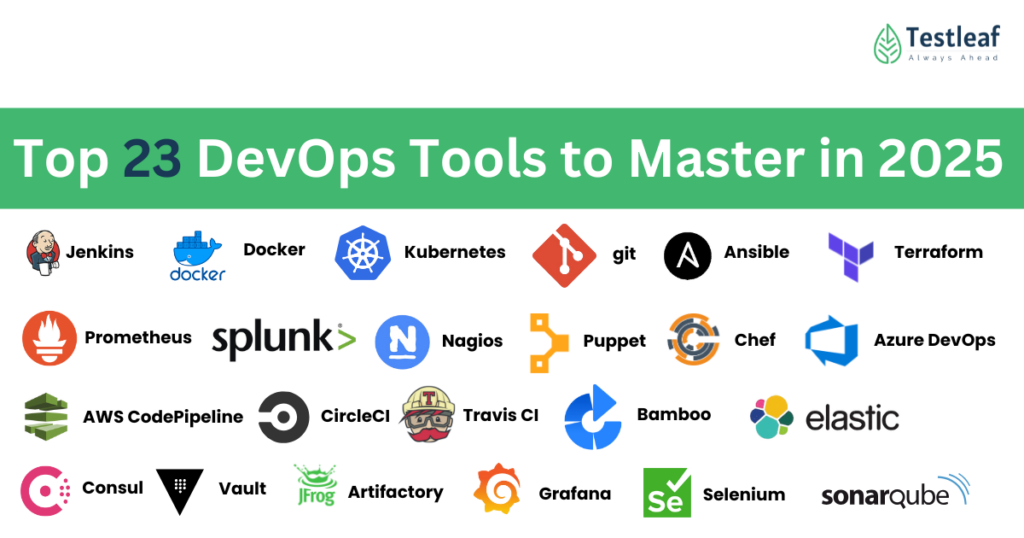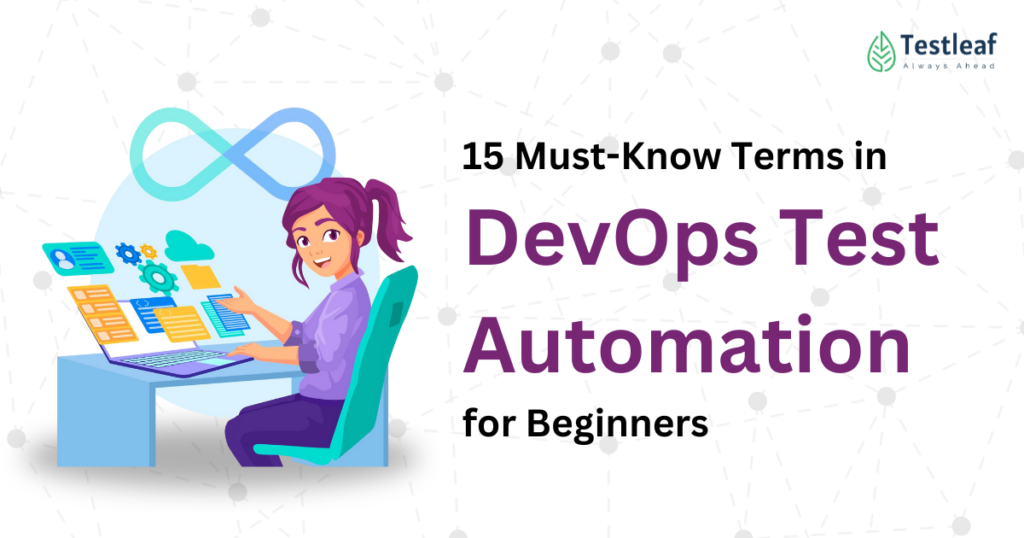The IT and software development landscape continues to evolve rapidly, and DevOps has emerged as one of the most sought-after domains in the tech industry.
As we approach 2025, the demand for DevOps professionals is expected to grow exponentially, driven by the need for organizations to achieve faster and more efficient software delivery, improve collaboration between development and operations teams, and embrace modern technologies like cloud computing and automation.
If you’re considering a career in DevOps, here’s an in-depth look at why it is a promising choice.
What is DevOps?
DevOps is a set of practices, cultural philosophies, and tools that aim to bridge the gap between software development (Dev) and IT operations (Ops). The primary goal of DevOps is to enable organizations to deliver applications and services at a high velocity. It focuses on:
- Automation: Streamlining repetitive tasks like testing, deployment, and monitoring.
- Collaboration: Enhancing communication between developers and operations teams.
- Continuous Improvement: Leveraging feedback loops to improve software quality and user experience.
- Faster Delivery: Achieving quicker release cycles without compromising reliability.
The DevOps approach encompasses various practices like Continuous Integration/Continuous Deployment (CI/CD), Infrastructure as Code (IaC), and monitoring systems to enhance software delivery pipelines.
Discover more about the top DevOps tools to master for success in 2025.
Why is DevOps Gaining Popularity?
The increasing demand for digital transformation has made DevOps indispensable for businesses aiming to stay competitive. Here are some reasons why DevOps is gaining traction:
- Faster Time-to-Market
DevOps enables businesses to release software updates and new features rapidly, ensuring they meet market demands and customer expectations. - Improved Collaboration
By breaking down silos between development and operations teams, DevOps fosters a culture of collaboration, leading to better productivity. - Cost Efficiency
Automating repetitive processes reduces the cost of errors and enhances resource utilization, saving businesses time and money. - Scalability and Flexibility
DevOps practices support the integration of modern technologies such as microservices, containers, and cloud computing, enabling businesses to scale their operations seamlessly. - Enhanced Security
Incorporating security measures into the DevOps pipeline (DevSecOps) ensures vulnerabilities are addressed proactively, reducing risks.
Key Skills Required for a DevOps Career
To succeed in DevOps, you need a blend of technical and soft skills. Below are some critical skills:
Technical Skills
- Coding and Scripting
Proficiency in languages like Python, Ruby, Java, or Bash is essential for automating processes and creating scripts. - Cloud Computing
Knowledge of platforms like AWS, Azure, and Google Cloud is vital, as DevOps heavily relies on cloud infrastructure. - Containerization and Orchestration
Tools like Docker and Kubernetes play a central role in deploying applications efficiently. - CI/CD Tools
Familiarity with tools like Jenkins, GitLab, CircleCI, or Travis CI is essential for automating build, test, and deployment processes. - Infrastructure as Code (IaC)
Tools like Terraform and Ansible help manage and provision infrastructure programmatically. - Monitoring and Logging
Tools such as Prometheus, Grafana, and Splunk are used to monitor systems and ensure reliability.
Soft Skills
- Collaboration
Working closely with cross-functional teams requires excellent interpersonal skills. - Problem-Solving
A proactive approach to troubleshooting and resolving complex issues is essential. - Adaptability
The fast-paced nature of DevOps demands professionals who can adapt to new tools and technologies. - Continuous Learning
Staying updated with the latest trends and tools in the DevOps ecosystem is crucial.
Future Scope of DevOps in 2025
1. Increasing Demand for Automation
Automation is at the heart of DevOps, and its importance will only grow as organizations look to optimize their processes further. Businesses will continue to rely on DevOps professionals to design and implement automated pipelines.
2. Rise of DevSecOps
As cybersecurity becomes a top priority, integrating security into DevOps practices (DevSecOps) will gain more traction. This will create additional opportunities for DevOps engineers skilled in secure coding and compliance management.
3. Integration with AI and ML
AI and machine learning technologies will augment DevOps processes, enabling predictive analytics, anomaly detection, and automated decision-making. Professionals with expertise in AI-driven DevOps will be in high demand.
4. Cloud-Native and Hybrid Environments
With the rise of cloud-native technologies, organizations will increasingly adopt Kubernetes, serverless computing, and hybrid cloud solutions. DevOps professionals will play a key role in managing these environments.
5. Edge Computing and IoT
The growth of edge computing and the Internet of Things (IoT) will require specialized DevOps practices for deploying and managing applications on distributed infrastructures.
Advantages of Choosing DevOps as a Career
- High Demand and Job Security
DevOps professionals are among the most sought-after roles in the tech industry, ensuring excellent job security. - Attractive Salary Packages
The average salary for DevOps engineers is higher than many other IT roles due to their specialized skills and the complexity of the job. - Diverse Career Opportunities
DevOps professionals can explore roles like Site Reliability Engineer (SRE), Cloud Architect, Automation Engineer, and DevSecOps Engineer. - Continuous Growth
The ever-evolving nature of DevOps ensures continuous learning and growth opportunities.
Learn how DevOps empowers Automation Engineers to streamline processes and enhance efficiency.
Challenges in a DevOps Career
While DevOps offers numerous benefits, it also comes with challenges:
- Steep Learning Curve
The wide range of tools and technologies in the DevOps ecosystem can be overwhelming for beginners. - High Responsibility
DevOps professionals are often on the frontline during system outages or deployment failures. - Dynamic Environment
The fast-paced nature of DevOps requires professionals to adapt quickly to new trends and demands. - Work-Life Balance
Managing complex systems and addressing critical issues may lead to long hours and stress.
How to Start a Career in DevOps?
- Educational Background
A degree in computer science or a related field can provide a strong foundation, but it is not mandatory. - Certifications
Certifications like AWS Certified DevOps Engineer, Microsoft Azure DevOps Engineer, or Docker Certified Associate can boost your credibility. - Hands-On Experience
Gain practical experience through internships, personal projects, or contributing to open-source projects. - Networking
Join DevOps communities, attend meetups, and participate in forums to learn from experienced professionals. - Keep Learning
Stay updated with the latest tools, practices, and trends in the DevOps space.
Conclusion
DevOps will continue to be a profitable and exciting employment option for tech workers in 2025. The need for qualified DevOps engineers will increase as cloud computing, automation, and DevSecOps become more widely used.
Even though there are difficulties in the position, the chances for development, learning, and high pay make it a fulfilling job choice.
If you have a strong interest in technology, problem-solving, and ongoing development, DevOps might be the ideal career choice for you.
Accept the trip, make educational investments, and get ready to succeed in one of the most fascinating IT-related industries.
Looking for the best DevOps certification course?
Testleaf is the right place!
We Also Provide Training In:
- Advanced Selenium Training
- Playwright Training
- Gen AI Training
- AWS Training
- REST API Training
- Full Stack Training
- Appium Training
- DevOps Training
- JMeter Performance Training
Author’s Bio:

As CEO of TestLeaf, I’m dedicated to transforming software testing by empowering individuals with real-world skills and advanced technology. With 24+ years in software engineering, I lead our mission to shape local talent into global software professionals. Join us in redefining the future of test engineering and making a lasting impact in the tech world.
Babu Manickam
CEO – Testleaf





